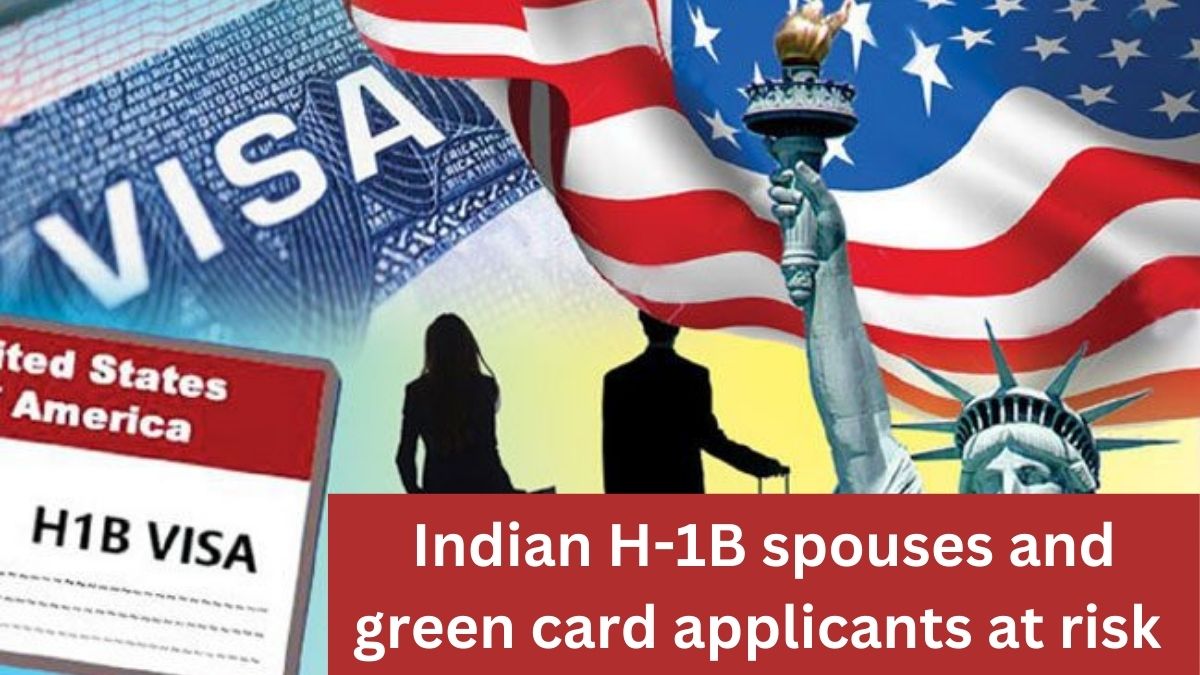The United States may significantly alter the automatic extension period for work permits, potentially affecting thousands of immigrants, including green card applicants and spouses of H-1B visa holders. Republican Senators John Kennedy and Rick Scott have introduced a resolution to revert the current automatic work permit renewal period from 540 days to the previous 180 days. This proposal, which falls under the Congressional Review Act (CRA), is part of broader efforts to challenge the Biden administration’s immigration policies.

The Implications of the Proposed Resolution
Reduced Work Permit Extensions:
The Biden administration’s 2022 rule extended the automatic renewal period for work permits from 180 days to 540 days. This measure aimed to address prolonged processing delays within the Department of Homeland Security (DHS). However, the proposed resolution seeks to undo this extension, potentially leaving many immigrants and their employers in difficult situations.
Affected Groups:
Key groups at risk include:
| Category | Impact |
|---|---|
| H-1B Visa Holder Spouses | Increased employment gaps due to delayed permit renewals. |
| Green Card Applicants | Higher risk of losing employment during processing delays. |
| Refugees and Asylum Seekers | Uncertainty in maintaining financial stability. |
This change could disproportionately affect businesses relying on foreign talent, as gaps in work authorization might lead to interruptions in employment continuity.
The Senators’ Criticisms of the Biden Administration’s Rule
Arguments by Senator John Kennedy:
Senator Kennedy has labeled the Biden-era work permit extension rule as a “dangerous” policy. He argues that allowing immigrants to retain work permits for an extended period without stringent oversight undermines immigration law enforcement. According to him, this policy hampers efforts to track individuals working in the U.S. without proper authorization and poses risks to national security.
Statements from Senator Rick Scott:
Echoing Kennedy’s stance, Senator Rick Scott criticized the policy as lenient and detrimental to Americans seeking jobs. He claimed the extended renewal period incentivizes undocumented individuals to remain in the U.S. and compete for employment opportunities, weakening former President Trump’s immigration and border security measures.
Both Senators argue that scaling back the renewal extension period would ensure better compliance with immigration regulations and reduce illegal employment practices.
Defense of the Rule by DHS and Biden Administration
The Department of Homeland Security (DHS) implemented the 540-day extension in December 2024 to address a pressing issue: severe backlogs in work permit processing. DHS Secretary Alejandro N. Mayorkas defended the move, emphasizing its importance in supporting the U.S. economy.
Economic Impact:
Mayorkas pointed out that the American economy has created over 16 million jobs since January 2021. The extended renewal period helps businesses fill job vacancies by reducing bureaucratic obstacles and preventing employment gaps for legal workers.
Administrative Efficiency:
The rule aimed to streamline processes for both employees and employers. By alleviating the strain on backlogged systems, the extension provided much-needed relief for workers awaiting their new permits.
Potential Ramifications of Reverting to 180 Days
If the proposed resolution passes, significant consequences could arise for immigrants and employers alike:
- Employment Interruptions: Workers whose permits expire during renewal processing may face job loss, leading to financial instability.
- Business Disruptions: Employers may struggle to retain skilled workers, affecting productivity and project timelines.
- Extended Processing Times: A shorter renewal period might overwhelm DHS, exacerbating current delays rather than resolving them.
Examples of Real-World Impact
- Technology Sector: Many H-1B visa holder spouses work in the tech industry. Reverting to a 180-day renewal period could disrupt employment for individuals supporting critical operations in major companies.
- Healthcare Professionals: Immigrant workers in nursing or healthcare roles may face job gaps, worsening staff shortages in hospitals and clinics.
Frequently Asked Questions
1. What is the Congressional Review Act (CRA)?
The CRA allows Congress to review and potentially overturn regulations implemented by federal agencies. This resolution leverages the CRA to challenge the Biden administration’s work permit extension rule.
2. Who benefits from the 540-day extension?
The extension benefits immigrants with pending work permit renewals, including H-1B visa holder spouses, green card applicants, and refugees, by reducing the risk of employment gaps caused by processing delays.
3. Why are Senators pushing to revert to 180 days?
Senators Kennedy and Scott argue that the longer renewal period undermines immigration enforcement and incentivizes unauthorized employment.
4. How will reverting to 180 days affect businesses?
Businesses relying on foreign workers may face operational disruptions due to employment gaps, making it harder to retain skilled talent during processing delays.
5. When will the proposed changes take effect if passed?
The resolution is currently under consideration. If approved, it could lead to significant policy changes in 2025.
Click here to know more.
Kishan is a knowledgeable writer specializing in agriculture and the latest government job recruitments, delivering clear and insightful content to inform and empower readers.
